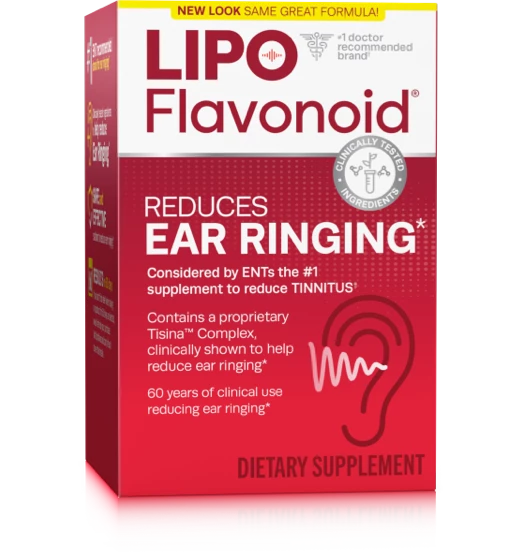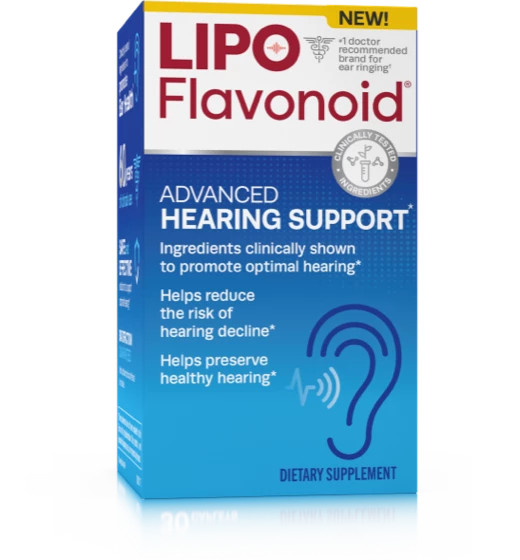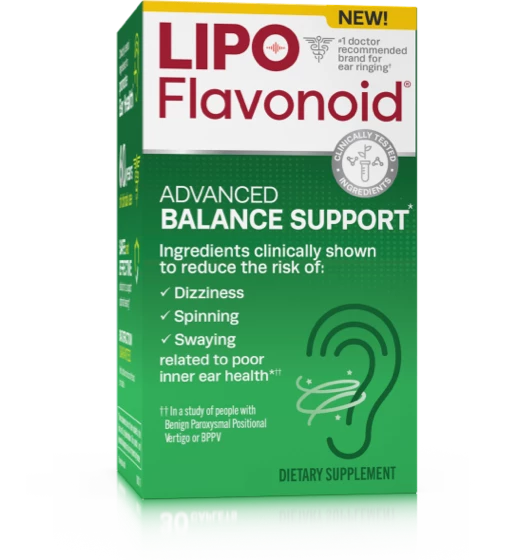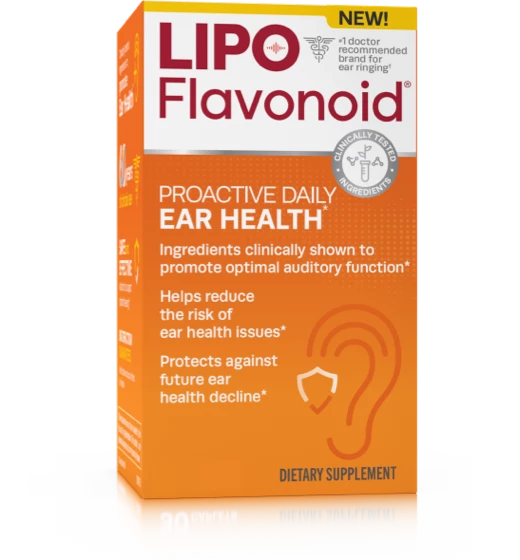- Products
- Science
-
Resources
- Tinnitus Resources
- What is tinnitus?
- Causes of tinnitus
- Tips for managing tinnitus
- Prepare for your doctor's visit
- PTSD and tinnitus
- Tinnitus FAQs
- Hearing Loss Resources
- What is hearing loss?
- Degrees of hearing Impairment
- Types of hearing loss
- Causes of hearing loss
- Treatment options for hearing loss
- Buy Now
- Coupons
- Test Your Hearing
- Test Your Hearing
- Healthcare Professionals
Experts Provide New Insights into Using Supplements for Tinnitus
If you’ve been reading this blog, you know tinnitus (ringing in the ears) is pretty common. In fact, about 10% of the adult population is affected, says the Journal of the American Medical Association.
You probably also know that there isn’t an FDA-approved medication to treat tinnitus, yet (but we keep hoping!)
At this time, the best that sufferers and their healthcare providers can do is work to manage distressing symptoms with hearing aids, counseling, sound therapy, and supplements (such as Lipo-FlavonoidⓇ.)
To help in this process, there are now new guidelines researched and written by Dr. Richard Tyler and Dr. Syed F. Ahsan, both leaders in ear health and tinnitus. Called a “guidelines advisory,” the recommendations represent expert consensus among key opinion leaders in this field.
Anyone considering supplements to help manage tinnitus, take note: the guidelines advisory recommends bioflavonoids, vitamins B1, B6 and B12, as well as melatonin – all active ingredients found in Lipo-Flavonoid products!
Ready for Supplements?
The new guidelines advisory can help you and your healthcare provider figure out if it’s time to try supplements for tinnitus. They suggest it’s appropriate to give supplements a shot if you’ve already done the following:
- Had a thorough medical check-up and hearing (audiological) exam.
- Discussed and tried (with the help of your healthcare provider) other tinnitus treatments like counseling, hearing aids and sound therapy.
- Thought about your goals for your tinnitus care such as the management of your symptoms or a desire to improve your quality of life or sleep.
- Came to peace with the fact that not all treatments help all tinnitus sufferers.
- Reviewed what’s in the supplement you’re going to try. (Read the active ingredients list and compare it to the chart at the end of this blog.)
- Formulated a plan to take the supplement correctly and to follow your healthcare provider’s instructions and/or the dosing information on the package.
- Figured out how much the supplements are going to cost and whether there’s a money back guarantee (such as Lipo-Flavonoid’s).
- Informed yourself of any potential side effects (most are minimal) and discussed them with your healthcare provider.
Is It Working?
The 2019 advisory guidelines have great tips to help you decide if supplements are making a difference in your life. They recommend keeping important factors (see list below) steady while experimenting with supplements. Also, they stress the importance of taking supplements for the amount of time recommended and at the proper dosage. For Lipo Flavonoid, for example, new users are advised to take 2 caplets 3 times per day for 60 days and then switch to a maintenance dosage of 1 caplet 3 times a day.
When Trying Supplements for Ear Ringing, Keep These Factors Consistent:
- Diet
- Caffeine
- Alcohol
- Prescription medications
- Other medications and supplements
- Sleep schedule
For more details on the supplement recommendations from the guidelines advisory, review the chart below and discuss it with your healthcare provider. Then explore Lipo-Flavonoid products and decide if they are right for you!
[advisory_chart]
*These statements have not been evaluated by the Food and Drug Administration. These products are not intended to diagnose, treat, cure or prevent any disease.
*Survey data on file
REFERENCES:
- April 2018 Survey. Clarion Brands Inc. data on file.
- Williams H, Hedgecock L. Citrus Bioflavonoids, Ascorbic Acid and Other B-vitamins in the Treatment of certain types of neurosensory deafness a preliminary report. Staff meeting of the Mayo Clinic (1962).
- Tinnitus Overview. Mayo Clinic website http://www.mayoclinic.org/diseases-conditions/tinnitus/basics/definition/con-20021487. Accessed Sept. 7, 2016.
- Understanding the Facts. American Tinnitus Associations website https://www.ata.org/understanding-facts. Accessed Sept. 7, 2016.
- Slattery WH, Fayad JN. Medical treatment of Meniere's disease. Otolaryngologic Clinics of North America 1997; 30:1027-37.
- Kumar S, Pandey AK. Chemistry and Biological Activities of Flavonoids: An Overview. The Scientific World Journal. 2013;2013:162750. doi:10.1155/2013/162750.
- Fetterman BL, Saunders JE, Luxford WM. Prognosis and treatment of sudden sensorineural hearing loss. Am J Otol 1996; 17:529-36.
- Arenberg I, Bayer R. Therapeutic Options in Meniere’s Disease. Arch Otolaryngol 1977;103: 589-93.
- Shaia F, Sheehy J. Sudden sensori-neural hearing impairment: a report of 1,220 cases. Laryngoscope 1976; 86:389-98.
- Herschberg S. Meniere’s disease. J Am Osteopathic Association 1974; 73:540-6.
- Wolfson R. Treatment of Meniere’s disease. Modern Treatment (1969) 6,3, 553-567.
- Rubin W. Vestibular suppressant drugs. Arch Otolaryngol 1973; 97:135-8




